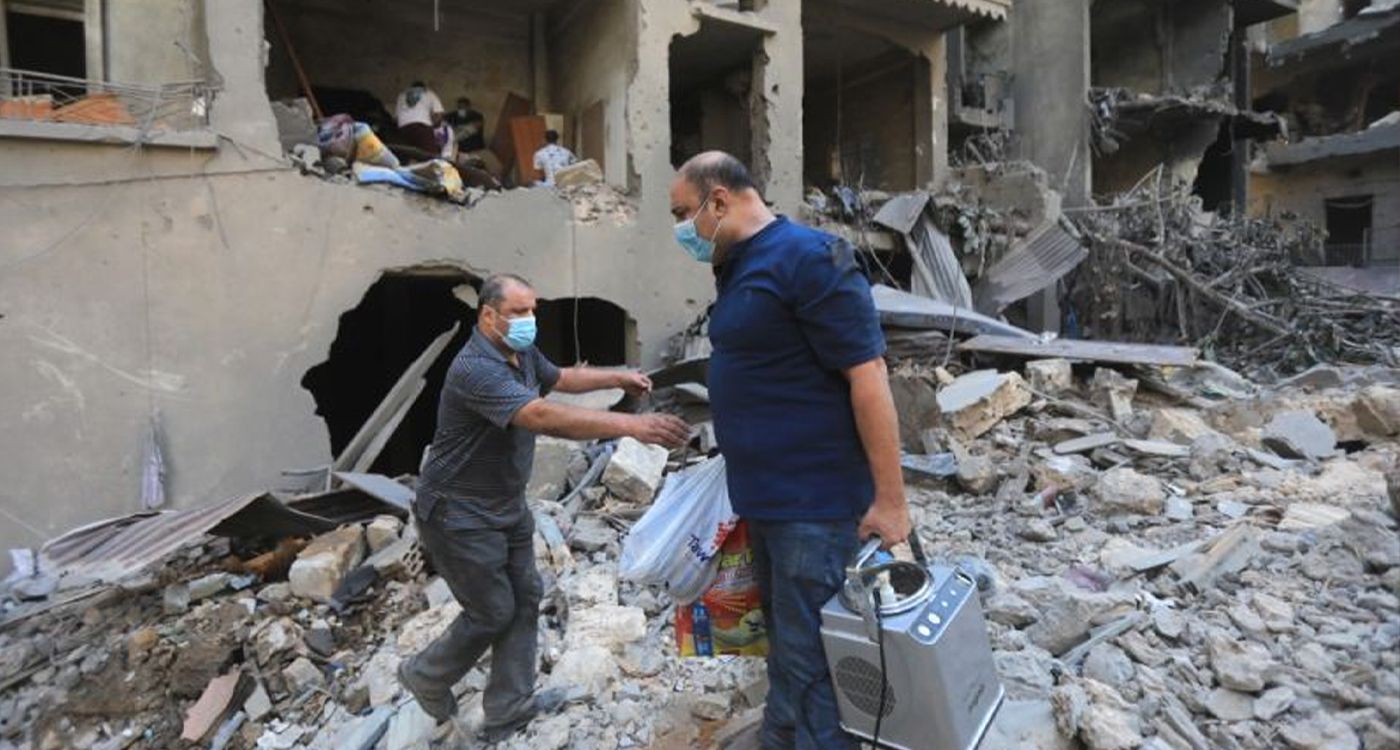
As Lebanon faces escalating conflicts, the health consequences could be disastrous. Now more than ever, it is urgent to enhance vigilance against potential epidemics.
With the intensification of hostilities between Israel and Hezbollah, Lebanon finds itself at a critical juncture for multiple reasons. This crisis has resulted in devastating consequences for the country, characterized by massive material destruction, a relentless exodus of residents from war-affected areas, and an alarming decline in living conditions for an increasing number of displaced people. These combined factors could lead to significant gaps in the public health system, heightening the risk of epidemics. As such, the detection and control of emerging infectious diseases becomes a major challenge, necessitating special attention and appropriate interventions.
According to the World Health Organization (WHO), wars and humanitarian crises are often linked to a surge in epidemic outbreaks. Standards for hygiene, infection prevention and screening are less stringent. In unstable areas, the ability of local health systems, which are often failing, to manage transmissible diseases raises serious concerns. Therefore, countries affected by conflict frequently face a heavy burden of morbidity and mortality, with more than 70% of reported cases of epidemic diseases worldwide, such as cholera, measles and meningitis, according to WHO statistics. So, what is the situation in Lebanon?
Increased risk
MP Abdul Rahman Bizri, an infectious disease specialist and author of several epidemiological studies, has recently highlighted a “real deficit in securing housing needs,” warning of the risk of spreading transmissible diseases. In an interview with Voice of Lebanon, he stated that while the situation in shelter centers is currently deemed acceptable and no epidemics are reported so far, efforts are underway to prevent contamination, particularly by ensuring access to clean drinking water. His observations align with those of WHO, which is now sounding the alarm. Speaking from Beirut, Ian Clarke, WHO’s deputy incident manager for Lebanon, warned in a press conference in Geneva on October 8 that, due to limited access to healthcare, Lebanon is facing “a situation where the risk of epidemics is significantly increased.”
In a conversation with This is Beirut, Dr. Bizri clarified that the current situation is vastly different from that of Syrian refugees, who contributed to the transmission of certain diseases from Syria to Lebanon. “With the Syrian exodus to Lebanon, we primarily observed an increase in waterborne infectious diseases, such as cholera, as well as vaccine-preventable diseases like measles, not to mention outbreaks of cutaneous leishmaniasis,” the Lebanese physician explained, noting that cholera cases are primarily linked to the influx of individuals from Syria. According to a genomic analysis conducted by Dr. Ghassan Matar’s team and published in Nature Communications in August 2024, the cholera outbreak in Lebanon between 2022 and 2023, associated with Syrian refugees, revealed two distinct strains: one from South Asia and the other from Yemen. “This is likely related to the movement of pro-government and anti-government fighters from various countries during the Syrian war,” Dr. Bizri explained.
Epidemiological reality
“Today, the situation is completely different,” he reiterated. “Internal displacement does not significantly alter the epidemiological reality. However, it has led to overcrowding, increasing the transmission of skin diseases.” In this regard, several cases of parasitic skin infestations, particularly pediculosis (lice infestation) and scabies, have been reported in certain centers but were quickly managed. “It is crucial to monitor these cases, as the spread of these parasites can be rapid,” commented the infectious disease specialist. Anti-parasitic shampoos, lotions and creams are currently available in Lebanon, both in pharmacies and through primary care centers.
Moreover, Dr. Bizri noted that the risk of transmitting waterborne infectious diseases remains concerning due to inadequate sanitation infrastructure in shelters. The absence of proper sanitation measures exacerbates this situation, further increasing the risk of pathogen spread, which can lead to diseases like hepatitis A and cholera. Children are particularly vulnerable to diarrheal diseases caused by pathogens present in untreated water. “A cholera vaccination campaign had been initiated prior to the conflict to contain and prevent outbreaks, especially in villages near the Syrian border. Now, the war threatens to compromise these efforts,” lamented the MP from Sidon.
Conducive factors
Furthermore, communal cooking practices amplify the risks of cross-contamination during various stages of preparation, transportation and service, especially if hot and cold chains are not maintained. “Recently, several cases of gastroenteritis and acute diarrhea have been observed in the centers, but they were swiftly managed,” said the doctor, who is also a member of the parliamentary health committee. With winter approaching, there are also concerns about the transmission of respiratory illnesses, particularly acute respiratory infections such as influenza, pneumonia, viral bronchitis, as well as measles and COVID-19, which can “spread rapidly in community settings and harm the health of the most vulnerable individuals.” Dr. Bizri concluded, “All factors likely to favor the emergence of potential epidemics are present. This does not necessarily mean that one will occur, but it is crucial to implement appropriate preventive measures to mitigate the risk.”

Comments